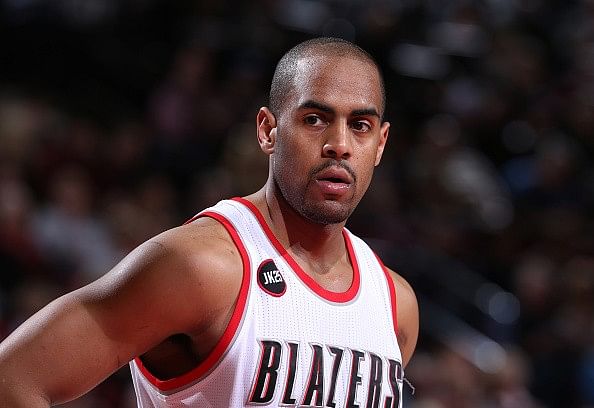
Revenge of the small market: How this NBA offseason had players chasing opportunity, not city

Big Market promises
It was all supposed to be about the Los Angeles Lakers and the New York Knicks. Two of the NBA’s most iconic and valuable franchises, situation in America’s most iconic and valuable cities, providing athletes with theoretical commercial reach and opportunity like none other. For years, it has been believed that NBA players are more likely to chase the limelight that ‘big market’ teams like the Lakers, Knicks, Celtics, Bulls, Heat, or Clippers provide, rather than head to a city without the off-court financial or entertainment opportunities.
Some believed in that statement to be myth, some believed that players only chased winning opportunities, and others thought that players chased money.
Small Market victories
And then, Greg Monroe chose the Milwaukee Bucks
Monroe, a mid-tier free agent big man who had played for the Detroit Pistons until last season, spurned the league’s two most valuable franchises – Lakers and Knicks – plus a handful of other suitors, to join the Bucks, a relatively small-town team that are currently ranked bottom among NBA teams on the Forbes list. The Bucks finished with a better record than either the Lakers or the Knicks last season, have a young core that is already playoff tested, have a talented young coach at the helm, and look to have a brighter future than the aforementioned ‘big market’ rivals.
And Monroe wasn’t alone: most of the big name unrestricted and restricted free agents over the last month chose to pass the glitz and glamour of the big city to choose the team that was the right fit for them and their ambitions. LaMarcus Aldridge and David West went to San Antonio. Rajon Rondo went to Sacramento. Monta Ellis headed to Indiana.

Some of the biggest moves were the ones that weren’t made. LeBron James and Kevin Love stayed in Cleveland. Marc Gasol resigned in Grizzlies. Kawhi Leonard extended his stay in San Antonio. Paul Millsap returned to Atlanta. All of these deals were made by All-Star calibre players to stay in cities without the ‘big market’ tag.
Value vs. Success?
According to Forbes’ most recent list, the most valuable franchises in the NBA are the Knicks, Lakers, Bulls, Celtics, Clippers, and the Nets. And yet, their value hasn’t necessarily been able to buy them success. The Knicks and the Lakers were two of the worst teams in their respective conferences. The Nets and Celtics made the playoffs despite losing records only because they were in the East. The Bulls and the Clippers were the only ones among them to make the Second Round of the playoffs.
Some of the NBA’s most talented and popular players – LeBron James, Kevin Durant, Anthony Davis, Russell Westbrook, Marc Gasol, and everyone on the Spurs play for teams outside of those big six mentioned above. Because of their reach and popularity, international fans have a knowledge of cities like Cleveland, Oklahoma City, New Orleans, Memphis, or San Antonio that they would’ve never had through other means of pop culture.
Small World
In the new, smaller world, where the entire universe of information is just a few tweets away, the geographical location of NBA stars rarely matter anymore. All that matters is talent and success. A player from Miami is as likely to be popular as one from Cleveland. Fans around the world are as likely to wear an Oklahoma City jersey as a Los Angeles one.
As we move forward with new TV deals and the expanded salary cap, expect the NBA to come closer to achieving more parity. Superstars will take their talents anywhere they feel the system is right and where management does a good job of promising them a future of success. This also means that teams like the Lakers and Knicks can’t rest on the promise of ‘Hollywood’ or ‘Big Apple’ to attract players anymore; LeBron and Durant get as much fanfare and mainstream attention in Cleveland or Oklahoma City as they would in New York, Los Angeles, Miami, Boston, or Chicago.
Ultimately, this will mean that contenders will emerge from different NBA cities, depending more on smart team management (like the Spurs) than the lazy chase of star power (like the Knicks). The Spurs, in particular, have been waving the flag for the ‘lower value teams’ for nearly two decades already; now, it seems that Milwaukee, Memphis, and the rest are completing the revenge of the small market, too.